I Was a Passenger in an Uber Accident. What Are My Rights?
If you were injured as a passenger in an Uber accident, your immediate priority is your health. Once you are home and safe, your next steps involve documenting your injuries, understanding the insurance coverage available, and preserving evidence.
One key fact to know is that while your Uber was in-trip, you are covered by a $1 million liability insurance policy provided by Uber. This coverage exists to compensate you for your injuries and losses, regardless of who was at fault, whether it was your Uber driver or the driver of another vehicle.
However, accessing this coverage involves dealing with corporate insurance adjusters and proving the full extent of your damages. An adjuster’s job is to resolve claims efficiently for their company, which may not align with your need for full and fair compensation for your medical bills, lost income, and pain, so working with a Tampa Uber accident lawyer can help protect your rights and pursue the recovery you deserve.
If you have a question about your Uber accident and what you should do, the team at Boohoff Law, P.A is here to help. Call us for a free consultation at (813) 445-8161.
Key Takeaways for Uber Passenger Accident Claims
- You’re protected by Uber’s $1 million insurance policy during your ride. This coverage applies whether your Uber driver or another driver caused the crash, and includes compensation for medical bills, lost income, and pain.
- Fault doesn’t matter for passengers but it does determine which insurer pays. If the Uber driver is at fault, Uber’s liability policy applies. If another driver is at fault, their insurer pays first, with Uber’s policy covering any shortfall.
- You may still recover compensation even if not wearing a seatbelt. Your payout might be reduced under Florida’s comparative fault rules, but you are not disqualified from making a claim.
Who Pays for Your Injuries? Unpacking Uber’s Insurance Policy
 One of the most common questions passengers have after a crash is: whose insurance is responsible for my injuries? The answer seems confusing because it involves layers of coverage, and you may need to sue Uber for an accident or injury if their insurance does not offer a fair settlement.
One of the most common questions passengers have after a crash is: whose insurance is responsible for my injuries? The answer seems confusing because it involves layers of coverage, and you may need to sue Uber for an accident or injury if their insurance does not offer a fair settlement.
However, Florida law has established clear rules for rideshare companies to ensure passengers are protected. Uber provides different levels of insurance depending on the driver’s status at the time of the crash. As a passenger, you were in the car during what is known as “Period 3,” which offers the highest level of coverage available.
What Does It Mean to Be “In-Trip?”
The moment your Uber driver accepts your ride request in the app, a powerful insurance policy is activated. This coverage remains in effect for the entire duration of your trip, ending only when the trip is officially concluded in the app. This window of time is legally defined as a “prearranged ride.”
This is precisely why your digital trip receipt is such a valuable piece of evidence. It serves as undeniable proof that you were within this protected period, making you eligible for the benefits provided under Uber’s corporate policy. It removes any ambiguity about whether you were a passenger in a commercial vehicle at the time of the accident.
The $1 Million Insurance Safety Net
Under Florida Statute § 627.748, rideshare companies like Uber are mandated to carry a specific level of insurance to operate in the state. For passengers who are in-trip, this law requires at least $1 million in death, bodily injury, and property damage coverage.
How it works: This policy is designed to be your primary source of compensation, regardless of who caused the accident. Whether your Uber driver was at fault or the driver of another vehicle was responsible, this policy is in place to cover your medical bills, lost income, and pain and suffering. It simplifies the initial process for you as an injured passenger, as you don’t have to wait for the insurance companies to fight over who is to blame before your claim is initiated.
What if the at-fault driver was uninsured? A concerning number of drivers on the road have no insurance or carry only the minimum required coverage, which may not be enough to cover serious injuries. Uber’s policy addresses this reality by including Uninsured/Underinsured Motorist (UM/UIM) coverage. This means if the responsible driver has no insurance or insufficient coverage to pay for your injuries, Uber’s policy steps in to cover the difference, up to the $1 million limit.
Why You Still Might Face Challenges
While the existence of this $1 million policy is reassuring, securing fair compensation is not automatic. Insurance companies are for-profit businesses, and their objective is to resolve claims for the lowest amount possible. They have teams of adjusters and lawyers whose job is to investigate every aspect of a claim.
They might question the severity of your injuries or suggest that a pre-existing condition is the true source of your pain. The claims process itself is long and filled with complex paperwork, and it’s easy to get frustrated and accept a lower offer as medical bills begin to mount. Our role is to build a comprehensive case that clearly demonstrates how the accident caused your injuries and justifies the full compensation you need for your recovery, which is essential if you were injured in an Uber accident.
Was Your Uber Driver or Someone Else at Fault? Why It Matters for Your Claim
As a passenger, you are almost never considered at fault for a car accident. The legal responsibility, or liability, will almost certainly fall on one or more of the drivers involved. Determining who was negligent is the key that unlocks your claim.
Negligence is a legal concept that simply means someone failed to act with reasonable care, and that failure caused you harm. The answer to the question of fault dictates which insurance policy we pursue first.
Scenario 1: Your Uber Driver Was At Fault
Your driver has a duty to transport you safely. If they breach that duty through actions like speeding, texting while driving, making an illegal turn, or following another car too closely, they are considered at fault.
In this situation, your claim for compensation is filed directly against Uber’s \$1 million commercial insurance policy. You would not typically file a claim against the driver’s personal auto insurance, as those policies almost always contain an exclusion for commercial activities like rideshare driving, so you may wonder should I get a lawyer to guide you through this process.
Scenario 2: The Other Driver Was At Fault
The accident is frequently caused by the driver of another vehicle. For instance, if another driver runs a red light and collides with your Uber, they are the at-fault party. In this case, the claims process begins with their auto insurance policy. We would file a claim against their insurance to cover your damages.
What if their insurance isn’t enough?
This is a very common problem in Florida. Many drivers carry only the minimum amount of insurance required by law, which is quickly exhausted by serious injuries.
If your medical bills and other losses exceed the other driver’s policy limits, we then turn to Uber’s underinsured motorist (UIM) coverage. This is a secondary layer of protection that exists to make up the difference, ensuring you have access to the full \$1 million in coverage if needed, which highlights why you need a car accident lawyer to handle the claim and protect your rights.
Scenario 3: Both Drivers Share the Blame
Sometimes, fault isn’t clear-cut. Florida operates under a comparative fault system. This means that a percentage of fault is assigned to multiple parties involved in an accident. For example, a court might find that the other driver was 70% at fault for speeding, while your Uber driver was 30% at fault for making an unsafe lane change without signaling.
As the innocent passenger, this legal complexity does not prevent you from recovering compensation. It simply means that the claim may involve negotiations with multiple insurance companies.
We handle this entire process, working to ensure that each responsible party’s insurer contributes their fair share to your settlement. Your position as a blameless passenger remains the same.
What Kind of Compensation Can You Pursue as a Passenger?
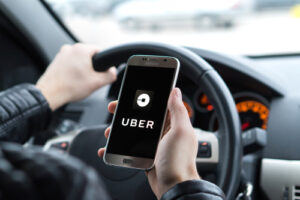 A personal injury claim allows you to seek compensation for all the ways the accident has impacted your life, both financially and personally. This compensation is legally known as “damages.”
A personal injury claim allows you to seek compensation for all the ways the accident has impacted your life, both financially and personally. This compensation is legally known as “damages.”
The goal is to make you financially whole again and to recover what you have lost because of someone else’s negligence. These damages are typically divided into two main categories.
Economic Damages: Your Tangible Financial Losses
These are the costs that have a clear and specific dollar amount attached to them. They are the most straightforward part of a claim because they are proven with bills, receipts, and pay stubs. We work to account for every single expense.
- Medical Expenses: This category is comprehensive. It includes everything from the initial ambulance ride and emergency room visit to hospital stays, surgeries, prescription medications, physical therapy, and any necessary medical devices like crutches or a wheelchair. It also includes the projected cost of any future medical care you may need.
- Lost Wages: This is direct compensation for the income you lost while you were unable to work during your recovery.
- Loss of Earning Capacity: If your injuries are severe and result in a long-term or permanent disability that prevents you from returning to your previous job or limits your ability to earn an income in the future, you are compensated for this projected loss of future earnings.
Non-Economic Damages: The Intangible Impact on Your Life
These damages are meant to compensate you for the human cost of the accident. While they do not have a specific price tag, they are just as real and just as important as your financial losses. Placing a value on this suffering is a key function a personal injury firm performs, and understanding who pays when you sue is essential for building a strong claim.
- Pain and Suffering: This compensates you for the physical pain, discomfort, and emotional distress caused by your injuries and the medical treatments you must endure.
- Mental Anguish: This addresses the psychological impact of the crash, which includes conditions like anxiety, depression, insomnia, or post-traumatic stress disorder (PTSD).
- Loss of Enjoyment of Life: If your injuries prevent you from participating in hobbies, sports, social activities, or family life that you once enjoyed, you are compensated for this diminished quality of life.
Frequently Asked Questions About Uber Passenger Accident Claims
Do I have to pay for a lawyer upfront?
No. At Boohoff Law, P.A., we handle personal injury cases on a contingency fee basis. This means we only get paid if we successfully recover compensation for you, either through a settlement or a court verdict. Our fee is a percentage of the total recovery. There are no out-of-pocket costs for our services, so you get high-quality legal representation without any financial risk.
How long do I have to file a claim in Florida?
Florida’s statute of limitations for personal injury claims has recently changed. For accidents that occurred on or after March 24, 2023, you generally have two years from the date of the accident to file a lawsuit. For accidents before that date, the deadline was four years. While two years may seem like a long time, it is always best to act quickly to preserve evidence and build the strongest possible case.
What if I wasn’t wearing a seatbelt?
Even if you were not wearing a seatbelt, you may still have a valid claim. Under Florida’s comparative fault rules, your compensation might be reduced by the percentage of fault assigned to you for not wearing a seatbelt. For example, if it’s determined you were 10% at fault for your injuries, your total award would be reduced by 10%. However, it does not completely bar you from recovery.
Should I accept the first settlement offer from the insurance company?
It is generally not a good idea to accept the first offer. The initial offer made by an insurance company is almost always lower than what your claim is actually worth. It is a tactic used to resolve the case quickly and for as little money as possible, typically before you even know the full extent of your injuries and future medical needs.
It is always wise to review any offer with an attorney before accepting.
Can I file a claim if the Uber driver was a family member or friend?
Yes. You are filing a claim against an insurance policy, not against your friend or family member personally. The very purpose of commercial auto insurance is to provide coverage for passengers in exactly these types of situations, regardless of the relationship between the driver and the passenger.
Let Us Handle the Details, So You Can Focus on Healing
 You were a passenger who placed your trust in a service to get you to your destination safely. We help clients across Florida hold the right parties accountable and secure the resources they need to move forward.
You were a passenger who placed your trust in a service to get you to your destination safely. We help clients across Florida hold the right parties accountable and secure the resources they need to move forward.
Call Boohoff Law, P.A today for a free, no-obligation case review at (813) 445-8161.
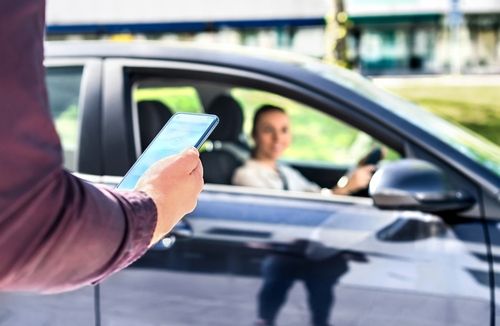
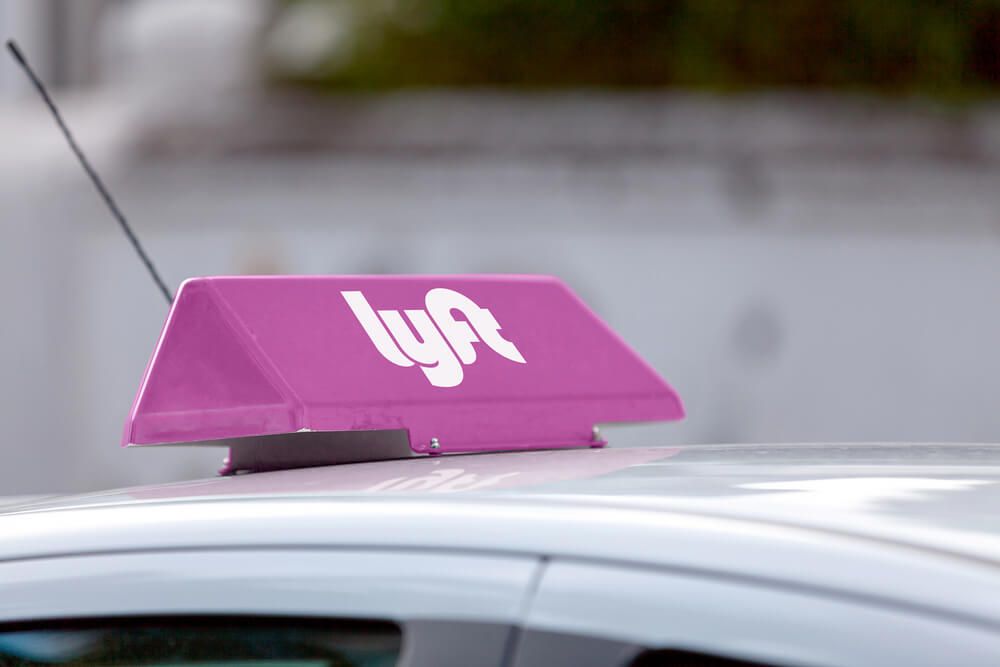
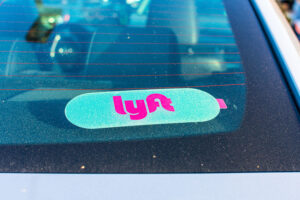

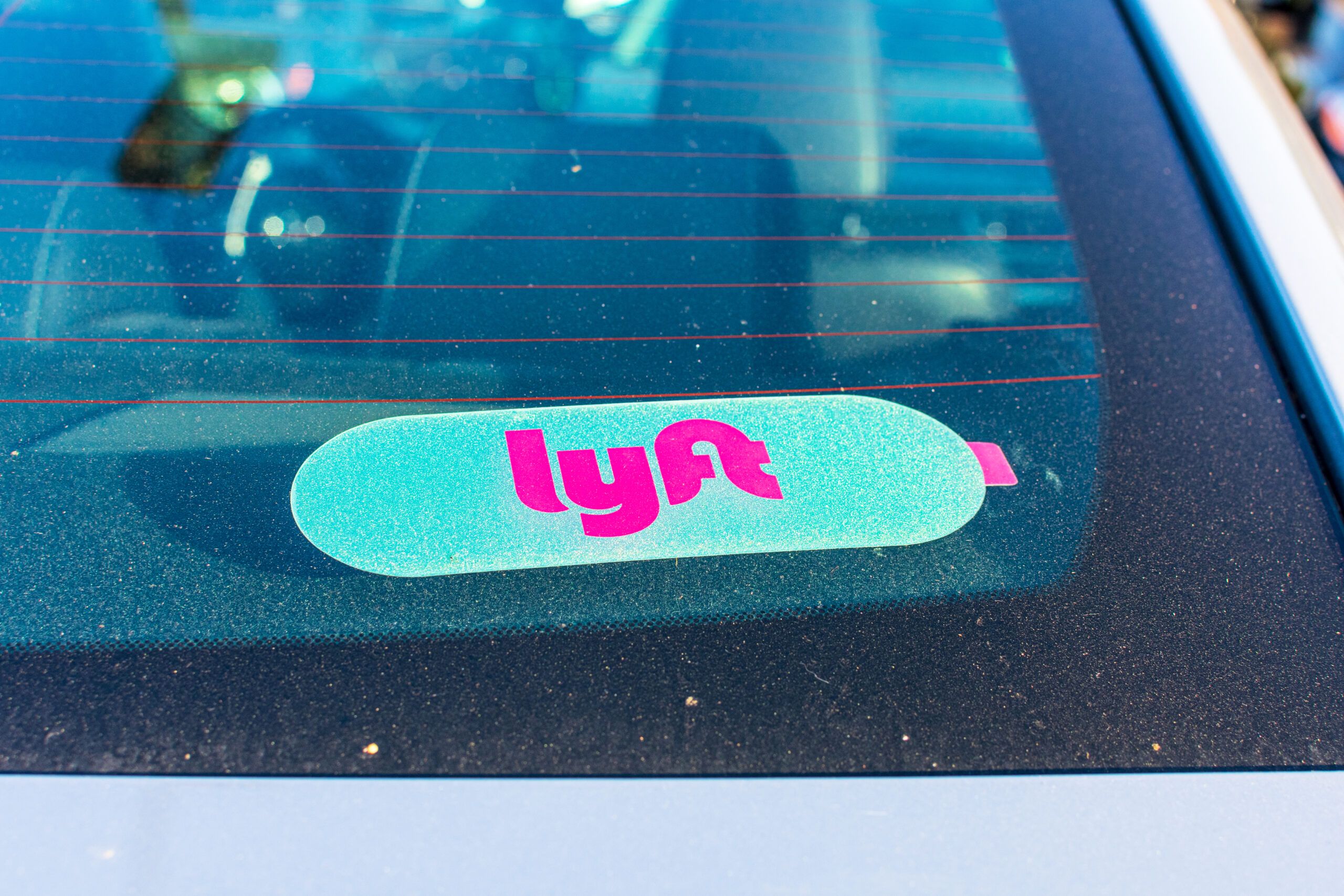


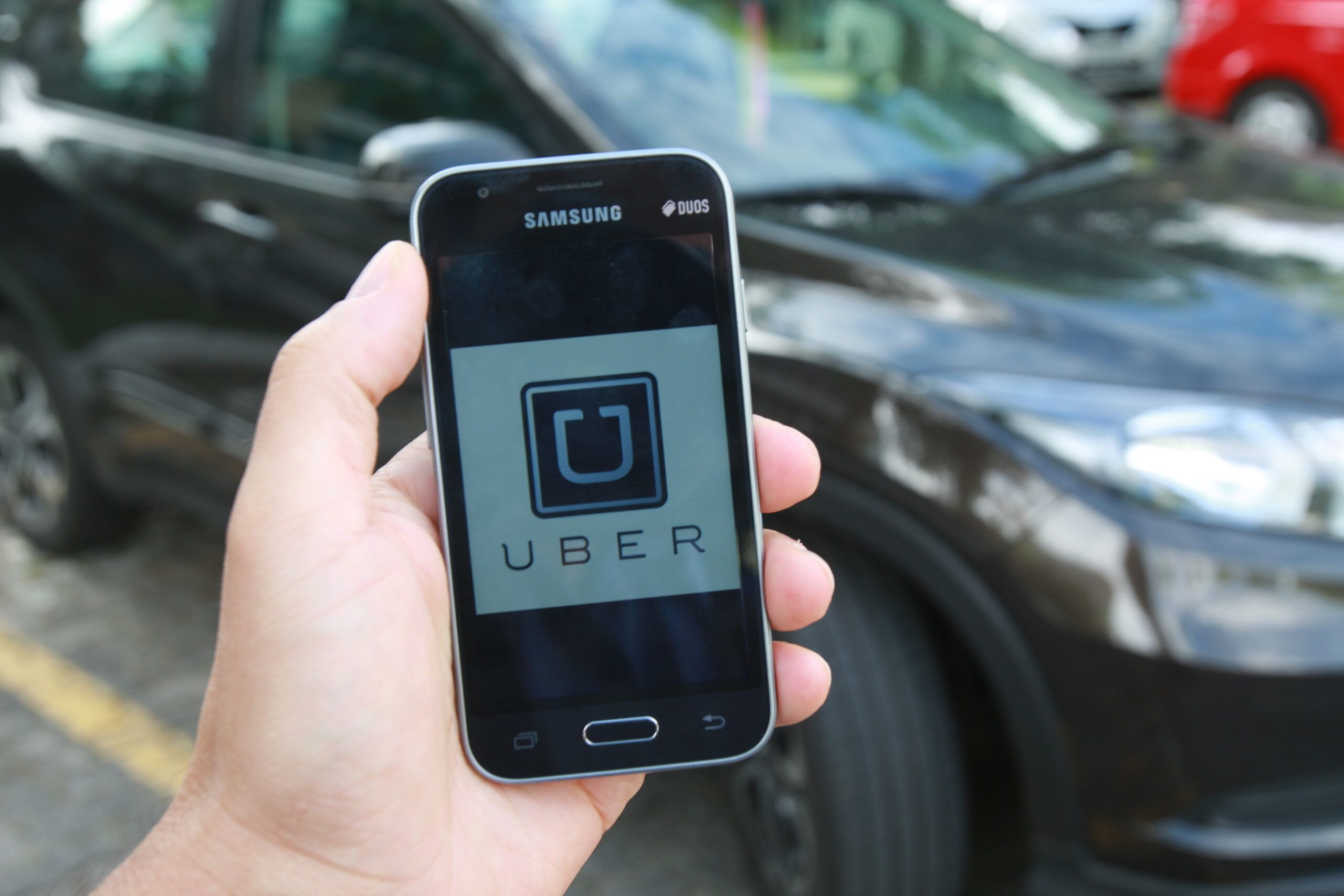
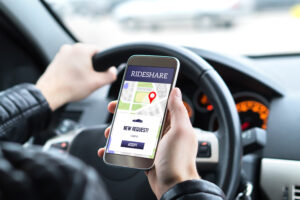 Rideshare accidents, like any other vehicle collision, can occur for numerous reasons. Some of the common causes of rideshare accidents include:
Rideshare accidents, like any other vehicle collision, can occur for numerous reasons. Some of the common causes of rideshare accidents include:
 After an Uber accident, you may have several options to pursue compensation, including filing a lawsuit. While the situation may feel confusing and overwhelming, you don’t have to handle anything alone. A local rideshare accident lawyer can take on your case to protect your rights and best interests from beginning to end. They will work tirelessly to gather evidence, communicate with insurance companies, and handle the legal complexities so you can focus on your recovery.
After an Uber accident, you may have several options to pursue compensation, including filing a lawsuit. While the situation may feel confusing and overwhelming, you don’t have to handle anything alone. A local rideshare accident lawyer can take on your case to protect your rights and best interests from beginning to end. They will work tirelessly to gather evidence, communicate with insurance companies, and handle the legal complexities so you can focus on your recovery.










